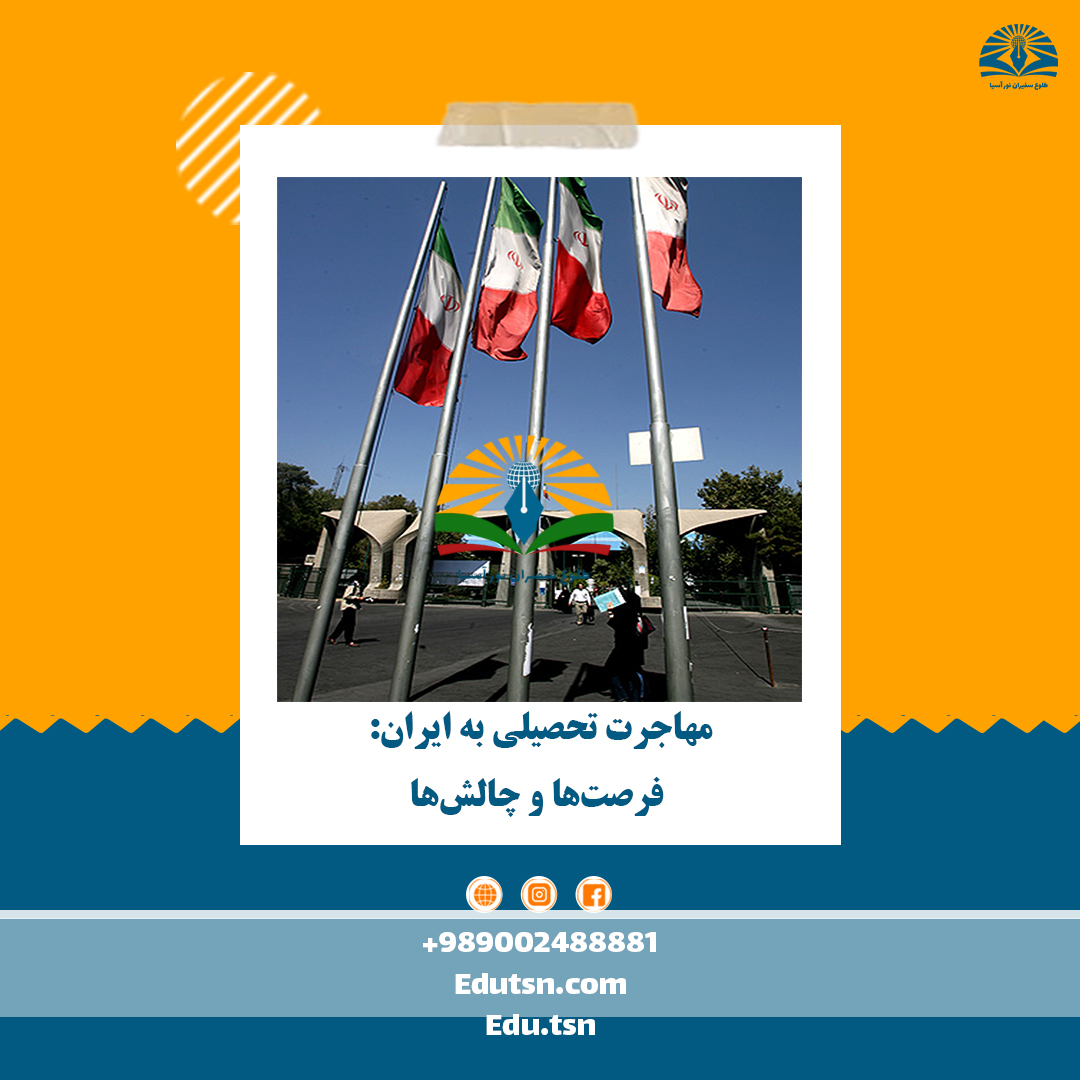![]()
Are you planning to study medicine in Iran? This comprehensive article will help you find the best medical universities in Iran for Iraqi students. From admission requirements and fees to scholarships and student life, read everything here. The importance of studying medicine in Iran for Iraqi students includes reasons like high-quality education, more affordable costs compared to other countries, cultural and geographical proximity, and more. We will further explain each of these in detail. Join us as we explore the benefits of studying in Iran.
Benefits of studying in Iran for Iraqi students

- Quality of education: Iran’s medical universities have experienced professors and advanced facilities that help students receive the best possible education. Mention the high educational standards, state-of-the-art laboratory and clinical facilities, and the strong connections between Iranian medical universities and healthcare centers.
- Affordable costs: The cost of education and living in Iran is lower compared to many other countries, making it an attractive option for international students.
- Cultural and linguistic proximity: Iraqi students can adapt more easily to Iran’s educational and social environment due to the cultural and linguistic similarities between the two countries.
20 of the best medical universities in Iran for Iraqis
Here, I will provide details about the strengths and advantages of each of the top medical universities in Iran for Iraqi students:
- Tehran University of Medical Sciences:
- Strengths: High global ranking, advanced research facilities, and distinguished professors.
- Advantages: Extensive research opportunities and international collaborations.
- Shahid Beheshti University of Medical Sciences:
- Strengths: High-quality education and diverse academic programs.
- Advantages: Advanced clinical facilities and job opportunities after graduation.
- Iran University of Medical Sciences:
- Strengths: Modern equipment and strong research programs.
- Advantages: Dynamic educational environment and international connections.
- Shiraz University of Medical Sciences:
- Strengths: Strong history in medical education, experienced professors.
- Advantages: Internship opportunities at reputable hospitals.
- Isfahan University of Medical Sciences:
- Strengths: Comprehensive academic programs, research facilities.
- Advantages: Suitable learning environment, job opportunities at reputable medical centers.
- Tabriz University of Medical Sciences:
- Strengths: High quality of education, advanced equipment.
- Advantages: Research and internship opportunities.
- Mashhad University of Medical Sciences:
- Strengths: Diverse academic programs, distinguished faculty.
- Advantages: Clinical and research facilities.
- Kerman University of Medical Sciences:
- Strengths: Modern equipment and strong research programs.
- Advantages: Dynamic educational environment and international connections.
- Ahvaz University of Medical Sciences:
- Strengths: High quality of education, comprehensive academic programs.
- Advantages: Job opportunities after graduation.
- Zahedan University of Medical Sciences:
- Strengths: Research facilities, experienced faculty.
- Advantages: Research and internship opportunities.
- Hamedan University of Medical Sciences:
- Strengths: High quality of education, advanced equipment.
- Advantages: Job opportunities at reputable medical centers.
- Kermanshah University of Medical Sciences:
- Strengths: Comprehensive academic programs, research facilities.
- Advantages: Suitable learning environment, job opportunities.
- Yazd University of Medical Sciences:
- Strengths: Strong history in medical education, distinguished faculty.
- Advantages: Internship opportunities at reputable hospitals.
- Babol University of Medical Sciences:
- Strengths: High quality of education, modern equipment.
- Advantages: Research and internship opportunities.
- Guilan University of Medical Sciences:
- Strengths: Diverse academic programs, distinguished faculty.
- Advantages: Clinical and research facilities.
- Mazandaran University of Medical Sciences:
- Strengths: Advanced equipment, strong research programs.
- Advantages: Dynamic educational environment and international connections.
- Ardabil University of Medical Sciences:
- Strengths: High quality of education, comprehensive academic programs.
- Advantages: Job opportunities after graduation.
- Kashan University of Medical Sciences:
- Strengths: Research facilities, experienced faculty.
- Advantages: Research and internship opportunities.
- Kurdistan University of Medical Sciences:
- Strengths: High quality of education, advanced equipment.
- Advantages: Job opportunities at reputable medical centers.
- Lorestan University of Medical Sciences:
- Strengths: Comprehensive academic programs, research facilities.
- Advantages: Suitable learning environment, job opportunities.
These universities are attractive to Iraqi students because of their high quality of education, advanced facilities, and research and job opportunities.
Factors affecting university choice for Iraqi medical students
Choosing the right medical university in Iran can be influenced by various factors. Here are some of the most important ones:1. Quality of Education
- University ranking: Universities that have high positions in global rankings such as QS, Times, and Shanghai usually offer better quality education.
- Distinguished Lecturers: The presence of experienced and distinguished faculty members can have a significant impact on the quality of education.
2. Research and Clinical Facilities
- Modern Equipment: Access to advanced and modern equipment is very important for conducting research and clinical internships.
- Teaching Hospitals: The presence of well-equipped teaching hospitals for internships and practical experience.
3. Cost of Living and Education
- University Tuition: Tuition costs vary among universities and should be chosen according to the student’s budget.
- Cost of Living: The cost of living varies in different cities in Iran and should be taken into account.
4. Language and Culture
- Cultural Similarities: Cultural and language similarities between Iran and Iraq can help students adapt more quickly to the new environment.
- Persian Language Instruction: Some universities offer Persian language courses for international students.
5. Job Opportunities After Graduation
- Job Market: Job opportunities after graduation in Iran and other regional countries can be an important factor in choosing a university. 3
- Networking: The opportunity to connect with faculty and other students to build professional networks.
6. Scholarships and Financial Aids
- Living Stipends: Some universities also offer living stipends.
7. Learning Environment and Welfare Facilities
- Student Dormitories: The availability of suitable dormitories and welfare facilities for students.
- Cultural and Sports Activities: The availability of cultural and sports activities for students.
Admission requirements and documents needed for Iraqi students at medical universities in Iran
1. Admission Requirements
- Valid Academic Certificate: Students must have a valid academic certificate from their previous schools or universities.
- Transcripts: Submission of previous academic transcripts.
- Letters of Recommendation: At least two letters of recommendation from previous professors or educational supervisors.
- Statement of Purpose: Explanation of reasons for wanting to study in Iran and future plans.
- Language Proficiency: Students must have a certificate of proficiency in Persian or English. Some universities offer Persian language courses.
- Health Certificate: A physical and mental health certificate from a reputable medical center.
2. Required Documents
- Application Form: Completion of the application form through the university’s website.
- Academic Documents: Including diploma, bachelor’s degree, or other academic certificates.
- Transcripts: Submission of previous academic transcripts.
- Letters of Recommendation: At least two letters of recommendation from previous professors or educational supervisors.
- Statement of Purpose: Explanation of reasons for wanting to study in Iran and future plans.
- Language Certificate: Persian or English language certificate.
- Health Certificate: A physical and mental health certificate from a reputable medical center.
- Passport: Copy of passport and identification documents.
- Photos: Several passport-sized photos.
3. Application Process
- Online Registration: Through the university’s website.
- Submitting Documents: Including academic certificates, letters of recommendation, and statement of purpose.
- Interview: In some cases, an interview is conducted to assess students.
- Announcement of Results: Results are announced after reviewing documents and conducting interviews.
- Obtaining a Student Visa: After acceptance, visit the Iranian embassy to obtain a student visa.
Tuition and living costs in Iran for students:
University Tuition Fees

- Type of University: Whether the university is public or private significantly affects the tuition fees.
- Field of Study: Medical and engineering programs generally have higher tuition fees.
- Level of Study: Tuition fees are higher for advanced levels such as master’s and doctoral programs.
- Geographical Location: Universities located in major cities usually have higher tuition fees.
Cost of Living

Scholarships for Iraqi medical students in Iran
1. Tehran University of Medical Sciences
Tehran University of Medical Sciences offers several scholarships for non-Iranian students, including Iraqi students. 2. Shahid Beheshti University of Medical Sciences also provides various scholarships for international students, including tuition discounts and living allowances.3. Iran University of Medical Sciences
Iran University of Medical Sciences also offers scholarships for international students.4. Shiraz University of Medical Sciences
Shiraz University of Medical Sciences also offers scholarships for international students, including Iraqi students.5. Isfahan University of Medical Sciences
This university also has various scholarships for international students, including tuition discounts and living allowances.Conditions for receiving a scholarship
- Academic Documents: including transcripts and previous educational certificates.
- Letters of Recommendation: from previous professors or educational authorities.
- Statement of Purpose: Explanation of reasons for wanting to study in Iran and future plans.
- Identification Documents: including passport and identification papers.
Application Process
- Online Registration: Through the university’s website.
- Submitting Documents: Including academic certificates, letters of recommendation, and statement of purpose.
- Interview: In some cases, an interview is conducted to assess students.
- Announcement of Results: Results are announced after reviewing documents and conducting interviews.
Benefits of Medical Student Scholarships
- Reduced Education Costs: tuition discounts.
- Living Allowances: including housing, food, and transportation costs.
- Research Opportunities: access to advanced research and laboratory facilities.
- Job Opportunities: the chance for internships and employment at reputable medical centers.
Dormitory Facilities
Universities in Iran offer various dormitory facilities for international students. These dormitories typically include shared or private rooms, study lounges, internet access, TV rooms, prayer rooms, dining halls, and small shops. Dormitory costs vary depending on the university and room type but are generally more affordable compared to many other countries.Cultural and Social Opportunities
Students in Iran can participate in a variety of cultural, sports, and social activities. Universities organize multiple programs, including cultural festivals, sports competitions, workshops, and charity events. Additionally, cities in Iran offer many opportunities for engaging in cultural and social events, helping students become more familiar with the local community.Familiarity with Iranian Culture and Customs
Familiarity with Iranian culture and customs is very important for international students. Iran has a rich culture and ancient history, including diverse customs such as Nowruz, Yalda Night, and various religious ceremonies. Understanding these cultures and traditions can help students connect better with the Iranian community and have a deeper experience of life in Iran. We conducted an interview with Ali Kazem, an Iraqi student at Tehran University of Medical Sciences, on this topic, which we will share with you below.Interview with Ali, an Iraqi medical student at Tehran University of Medical Sciences





